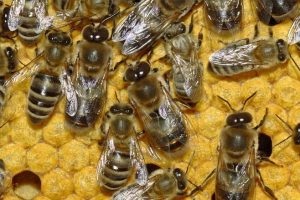 Many phenomena are common to us all, but the way they work might be less well known. Why? They are dynamic systems! What is a dynamical system? Generally, it means that such kind of systems are described by Partial Differential Equations (PDE), and in order to study them, we have to understand their properties and we need to control some of them. We need to simulate the control developed in order to be sure that it fits exactly what it is expected, or to understand how a phenomenon is going on!
Many phenomena are common to us all, but the way they work might be less well known. Why? They are dynamic systems! What is a dynamical system? Generally, it means that such kind of systems are described by Partial Differential Equations (PDE), and in order to study them, we have to understand their properties and we need to control some of them. We need to simulate the control developed in order to be sure that it fits exactly what it is expected, or to understand how a phenomenon is going on!
This intriguing area will be studied in a recently granted project “DYCON–Dynamic control”, which aims to develop a multifold research agenda in the broad area of Control of Partial Differential Equations (PDE) and their numerical approximation methods by addressing some key issues that are still poorly understood. To this end we aim to contribute with new key theoretical methods and results, and to develop the corresponding numerical tools and computational software.
The field of PDEs, together with numerical approximation and simulation methods and control theory, has evolved significantly in the last decades in a cross-fertilization process, to address the challenging demands of industrial and cross-disciplinary applications such as, for instance:
- The management of natural resources (water e.g.).
- Meteorology (make better weather predictions e.g., which involves big data problems and related numerical problems), aeronautics.
- The oil industry (oil forage e.g., whose main problem is the friction at the bit).
Biomedicine (cancer strategy via immunotherapy). - Human and animal collective behaviour, (understand behaviour of bees in order to anticipate their extinction, relations and interactions between several species) etc…
DYCON
 The ERC Advanced Grant DYCON project identifies and focuses on six key topics that play a central role in most of the processes arising in control applications, but which are still poorly understood: control of parameter dependent problems; long finite time horizon control; control under constraints; inverse design of time-irreversible models; memory models and hybrid PDE/ODE models, and the links between finite and infinite-dimensional dynamical systems.
The ERC Advanced Grant DYCON project identifies and focuses on six key topics that play a central role in most of the processes arising in control applications, but which are still poorly understood: control of parameter dependent problems; long finite time horizon control; control under constraints; inverse design of time-irreversible models; memory models and hybrid PDE/ODE models, and the links between finite and infinite-dimensional dynamical systems.
These topics cannot be handled by superposing the state of the art in the various disciplines, due to the unexpected interactive phenomena that may emerge, for instance, in the fine numerical approximation of control problems. The coordinated and focused effort that we aim at developing is timely and much needed in order to solve these issues and bridge the gap from modelling to control, computer simulations and applications.
The ERC Advanced Grant DYCON provides resources to researchers willing to contribute to these endeavours within the research team led by Enrique Zuazua at Universidad Autónoma de Madrid-Spain.
Researchers interested in cooperation are welcome to get in contact with Enrique Zuazua (enrique.zuazua@uam.es, enrique.zuazua@deusto.es, cmc.deusto.eus/enzuazua/).
There will be openings and opportunities for researchers in all career stages: internship PhD students from other centers and groups, PhD and postdoctoral contracts and one-quarter visiting positions of confirmed researchers.
This article was published by Valérie Dos Santos Martins in IFAC blog, on November 10, 2016. You can download full article in this link.

